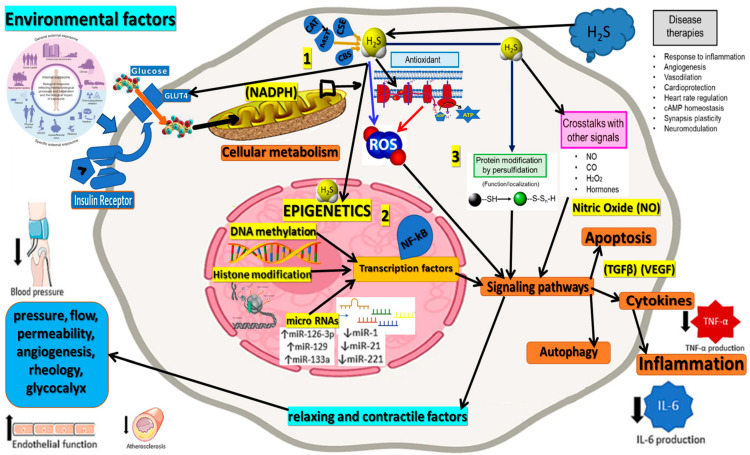Figure 1.
This figure illustrates the central role of Hydrogen Sulfide (H2S) in epigenetic regulation and its interactions with various processes associated with neurodegenerative diseases. H2S affects epigenetic mechanisms, including histone modification, DNA methylation, and non-coding RNAs, which modulate gene expression and cellular functions relevant to neurodegeneration. H2S influences reactive oxygen species (ROS) production and oxidative stress levels, which play a critical role in the pathogenesis of neurodegenerative disorders. By reducing ROS production (blue arrow) and inhibiting ROS-generating processes at the mitochondrial level (red arrows), H2S impacts a broad spectrum of biological functions, as depicted in this figure for illustrative purposes. The interplay between H2S, epigenetic processes, and oxidative stress offers valuable insights into the molecular mechanisms underlying neurodegeneration and highlights the potential for therapeutic interventions to restore epigenetic balance and mitigate oxidative stress to combat neurodegenerative diseases effectively. The figure corroborates 3 major parts: 1. external sources and internal production of H2S; 2. the epigenetic role of H2S; and 3. the physiological connections presented in a simplified way.

